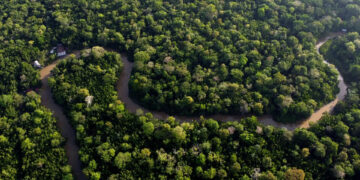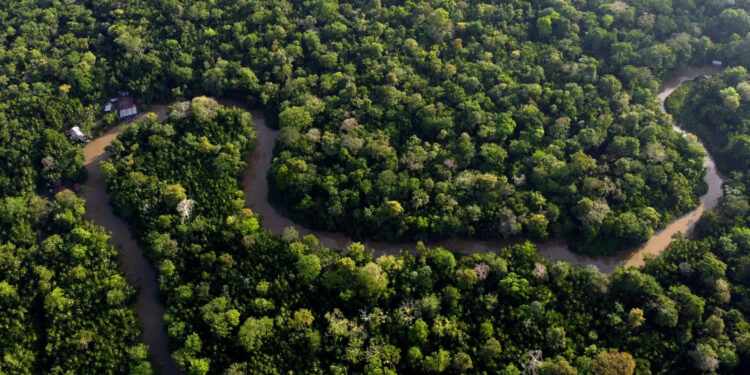In an unprecedented move to combat international drug trafficking, France has unveiled plans to construct a €400 million high-security prison in its Amazonian territory of French Guiana, reviving the region’s dark history as home to the infamous Devil’s Island penal colony.
Justice Minister Gérald Darmanin announced the 500-bed facility during a weekend visit to Saint-Laurent-du-Maroni, strategically located near the borders of Brazil and Suriname which is a key transit points for cocaine entering Europe.
The new prison, slated to open by 2028, will house 60 high-level drug lords and 15 terrorists, forming the third pillar of Darmanin’s strategy to sever incarcerated kingpins from their criminal networks. This follows the establishment of two other maximum-security prisons in northern France targeting the country’s top 100 traffickers.
“Our prisons must become impenetrable fortresses against organized crime,” Darmanin told Le Journal du Dimanche, lamenting how current facilities allow drug lords to continue orchestrating murders and intimidation from behind bars.
The chosen site carries historical weight, lying just miles from the abandoned Devil’s Island colony—the brutal penal system immortalized in Henri Charrière’s novel Papillon. That 19th-century complex, where prisoners suffered horrific conditions, was closed in 1953 after global outcry.
Officials emphasize the new institution will meet modern human rights standards while leveraging French Guiana’s remote geography as a natural barrier against escapes and outside interference.
French Guiana has become a frontline in Europe’s drug war, with 70% of France’s cocaine seizures occurring there last year. The territory’s vast, forested borders and proximity to Latin American cartels make it a preferred smuggling route.
Local authorities hope the project will bring economic benefits to Saint-Laurent-du-Maroni, including 300 permanent jobs, while easing overcrowding in mainland prisons. A dedicated courthouse will be built adjacent to the facility to handle major narcotics cases.
Critics question whether relocating prisoners thousands of miles from their networks will truly dismantle trafficking operations, with some opposition lawmakers calling it a “colonial-era approach to justice.”
But with European cocaine purity at record highs and drug-related violence escalating in French cities, the government appears determined to make this tropical Alcatraz a cornerstone of its war on drugs.



































